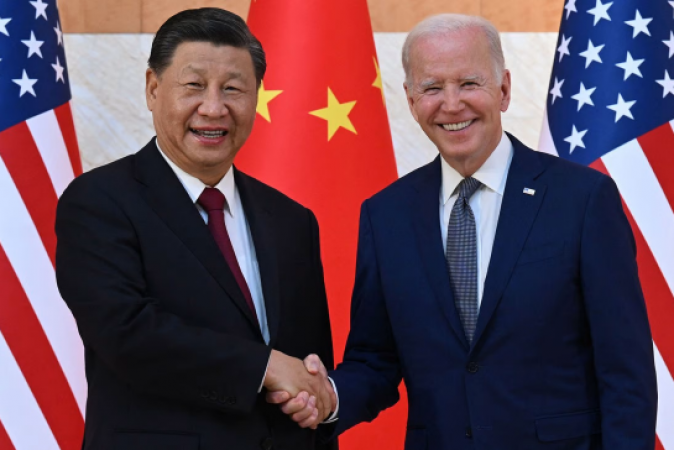
Beijing: China's non-market economic policies continue to impact the US economy and Washington will continue to press Beijing to resolve outstanding issues, the top US trade official said on Tuesday. However, he gave no indication that the tariffs would be removed.
According to US Trade Representative Catherine Tai, Washington has been in contact with Beijing and is "optimistic about their ability to manage an important and complex relationship with regard to tariffs."
"I think it's part of non-economic practices and concerns, and we will continue to work on those issues," he told the Bloomberg New Economy Forum in Singapore.
Also Read: Turkey's desire for closer ties with China is hampered by NATO and the Uygur issue
The US has long accused China of unfair trade practices, including stealing the intellectual property of American companies, requiring forced technology transfers and denying them access to Chinese markets. China claims that the US is trying to slow down its emergence as a major economic power in the world.
Tai made his comments after a meeting between President Xi Jinping and his US counterpart Joe Biden in Bali, Indonesia ahead of the Group of 20 summit on Monday.
Biden stressed during the three-hour conversation that the US would continue to compete fiercely with China, including coordinating efforts with allies and promoting more domestic investment.
However, according to statements made after the meeting, the two countries should cooperate on international issues such as global food security, climate change, macroeconomic policies and trade.
One of the most important lessons learned is that the two leaders have instructed their top officials to stay in touch, and Tai said he looked forward to having frank and open discussions with his counterparts in Beijing.
Also Read: Property curbs investors are not convinced despite China relaxing some zero-Covid policies
A report by the Peterson Institute for International Economics said China now makes up 18% of all US imports, down from 22% before the trade war started in 2018.
According to Tai, several hurdles still stand in the way of lowering tariffs, including investigations into Chinese violations of intellectual property rights and forced technology transfer practices that US stakeholders have faced when doing business with China. .
Earlier this year, Biden said he was looking at reversing some of the tariffs imposed by Trump, especially in light of rising inflation rates.
As senior US officials prepare to meet in Australia for the first round of in-person talks on the Indo-Pacific Economic Framework (IPEF), as part of Washington's effort to counter China's influence in the region It is seen, Tai discussed this as well. issue in her interview.
IPEF's 14 founding countries are from the Asia-Pacific region and was established by Biden in May with the goal of promoting trade and investment ties.
Also Read: Economy of Kazakhstan struggling because of the situation in Ukraine
According to Tai, the agreement will still serve as "a 21st-century framework for 21st-century challenges, including greatly disrupted supply chains and a global economy that has really demonstrated rebuilding trust, stability resilience and inclusion" Looking for opportunities to do"
He said that to achieve our vision in four pillars it is necessary to deliver results on time and 2023 will be all about it.